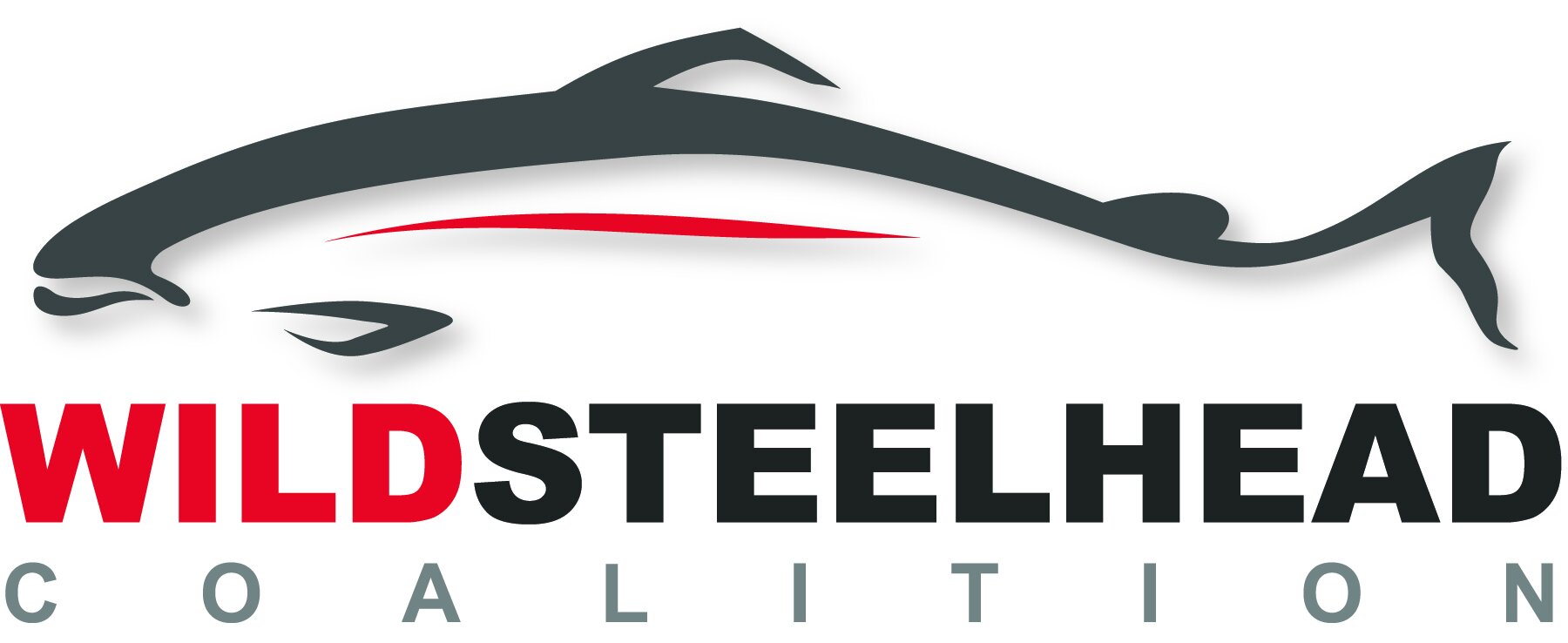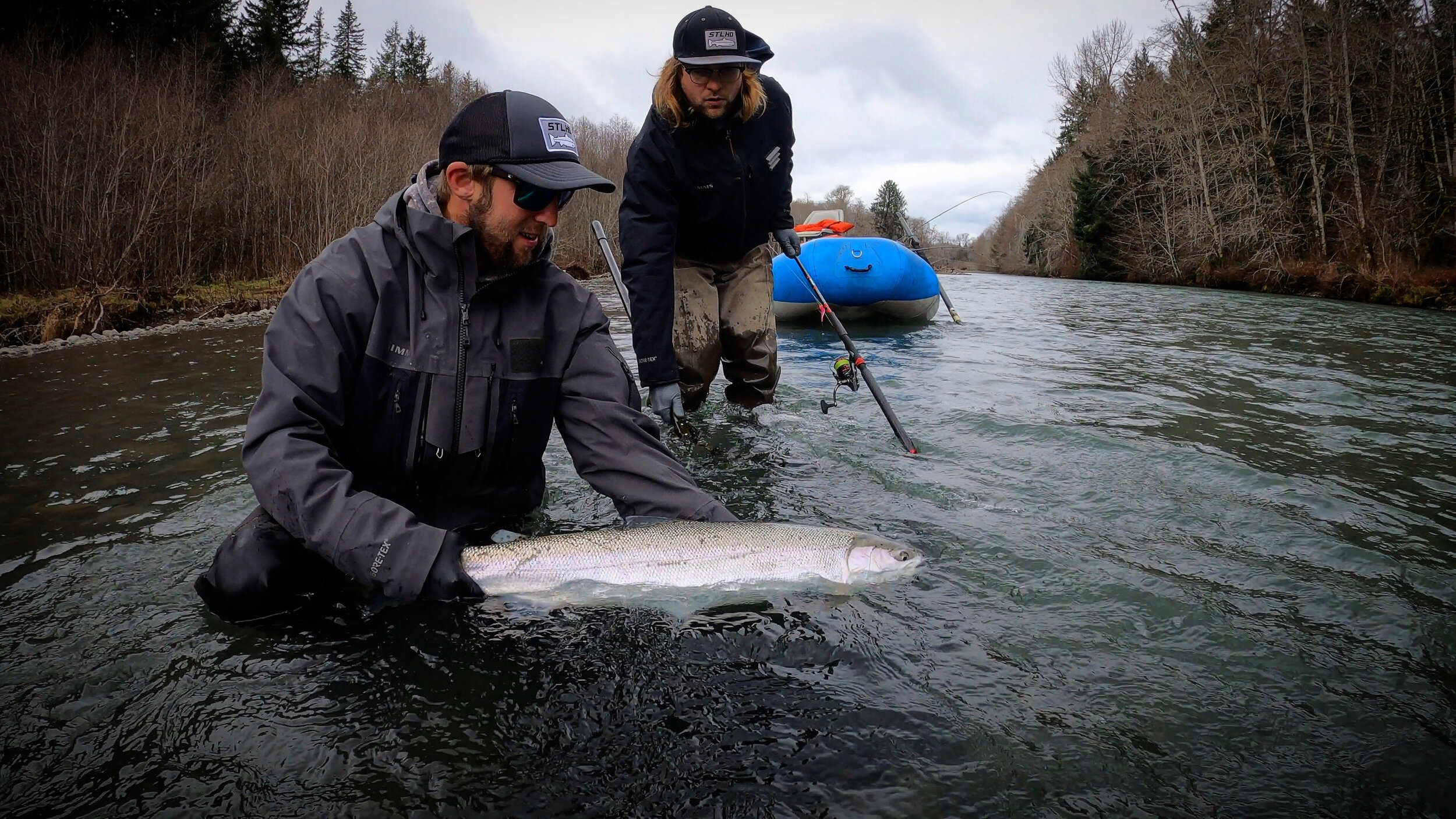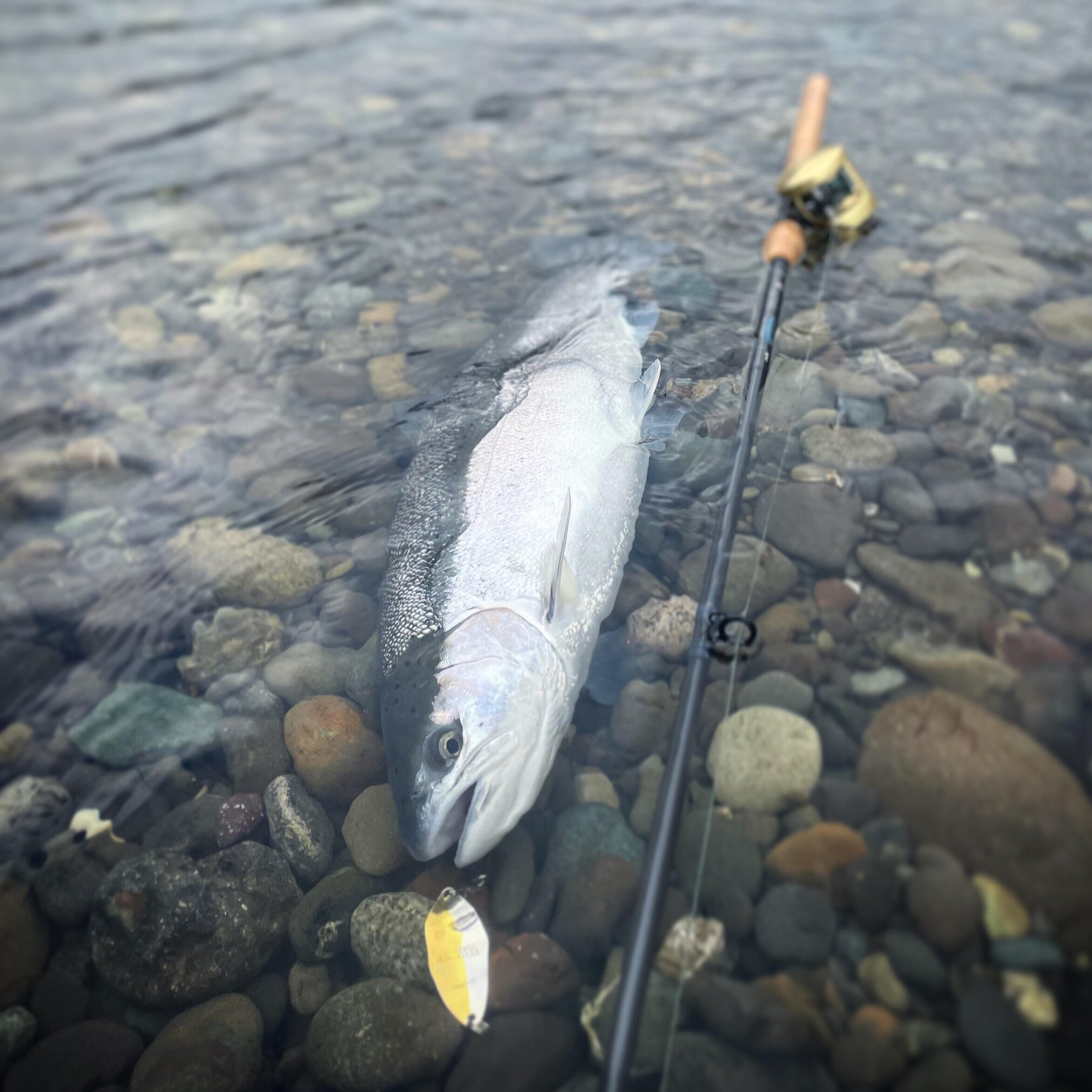Closed Door Steelhead Meetings and More Gill Nets in the Columbia: The Washington Fish and Wildlife Commission’s Commercial Agenda
Washington Coast photo courtesy of Lee Geist
It is a universal truth that anglers would rather be out on our favorite waters rather than spending time fighting about regulations or trying to keep up with the politics and bureaucracy of managing our fisheries. Ideally, anglers could trust our managers and public officials to prioritize the long-term health and recovery of our wild steelhead and salmon runs and make the right decisions to share these public resources fairly with all Washington residents.
Unfortunately for Washington anglers, we don’t have that luxury. We must pay careful attention because our current Fish and Wildlife Commission seems committed to favoring over-exploitation and commercial interests rather than honoring their mandate to “preserve, protect, perpetuate, and manage” fisheries for the entire public.
The most recent example occurred in the ongoing aftermath of this winter’s emergency rule changes for coast and OP steelhead fisheries. As many readers probably know, the Fish Committee of the Commission had announced a meeting with a select group of coastal “stakeholders” in April. Well, this list of “stakeholders” turned out to be a group of commercial fishing guides and the City Attorney from Forks. Concerned anglers started asking questions on popular online fishing forums and the meeting was cancelled soon afterwards.
What many Washington anglers probably don’t know is that the meeting was quietly rescheduled without a whisper from the Commission.
On May 19th, the Commission's Fish Committee held a closed-door discussion with the commercial guides and the Forks attorney. WDFW fishery managers, including Director Susewind, were asked to attend. We’ve heard rumors about the specific roster of attendees and that the commercial interests who were present were demanding lower escapement goals for coastal rivers. The meeting discussion is unconfirmed because it wasn’t recorded and no notes are available to the public.
On June 8th, in the WDFW’s Guide Advisory Group’s public meeting, Bob Kratzer (Angler’s Guide Service) and representatives of the Department were asked about the meeting. The WDFW employees didn’t know the rescheduled meeting had even occurred. Mr. Kratzer described it as a “productive conversation” between “recreational anglers” and the Commission. He went on to say that the guides were “in a lot better place now” and announced that the Department was planning some kind of new ad hoc advisory group. No one knows what this means, because there is no way for the public to learn what was actually discussed or promised in the meeting.
This spring, conservation organizations had also reached out to the Commission hoping to discuss our perspectives on restoring wild steelhead runs on the coast and how that goal could align with lower-impact fishing seasons. We were rejected twice. The second time was the day before the rescheduled closed-door Fish Committee meeting was held.
In an email we were told: “Chair Carpenter and the members of the Fish committee request, at this time, that those who would like to give feedback about coastal steelhead seasons, planning, and issues provide comment at the June 25-26, 2021 Commission meeting. There will be an item that speaks to this issue in particular and a public comment period.”
We also know that another large group of regional guides, manufacturers and shops, all of whom are also dedicated stakeholders in the coastal steelhead fishery, representing hundreds of thousands of dollars of economic activity, sent letters supporting this past winter’s rule changes and the WDFW’s recent efforts to protect fragile coastal wild steelhead stocks. At the time of this writing, this group of guides and businesses haven't received any constructive response from the Commission, or members of the Fish Committee, let alone an invitation for their own off-the-record, closed-door meeting with fishery managers.
These double-standards make it clear where the Commission’s loyalty lies.
Photo courtesy of Lee Geist
This would all be bad enough if the Commission’s biased track record only affected coastal steelhead, but unfortunately it is just more evidence of a larger, disturbing agenda.
In the last two years, as the Commission pushed through their revised hatchery policy, they repeatedly rejected the findings and guidance of WDFW scientists and then, at the last minute, voted to exempt undefined initiatives, including the massive stocking increase of 24 million chinook, from the State Environmental Policy Act (SEPA) review process.
Now, aside from the fact that this exemption was arbitrary and violates the intent if not the letter of the State Environmental Policy Act, no matter how you feel about the role of hatcheries in Washington’s fishery management, you should want a Commission that opts to uphold key environmental protections and scientific consensus rather than disregarding them whenever they are deemed inconvenient.
Why were a majority of Commissioners willing to act so recklessly?
This same Commission has also spent the last two years working to expand mainstem commercial gill netting in the Columbia River. A nearly complete lack of data concerning bycatch rates or long-term survival of fish harmed and released by these nets has been no deterrent to their regressive, outdated management regime. The Commission pushed forward to move more gill nets into the mainstem, an increase in commercial fisheries at the expense of endangered wild B-run Steelhead, depleted lower Columbia wild Chinook, and sport anglers who work hard to selectively harvest fish throughout the watershed.
Recreational anglers carefully release endangered wild fish and are frequently told to not fish for fear of harming fragile stocks, but this Commission seems to believe that expanding the wall of indiscriminate gill nets across the river is something they should support and prioritize in the face of low fish counts. It was an appalling, deeply irresponsible decision, but sadly it is not a surprise.
Anglers troubled by this clear pattern of mismanagement must get involved. By legal mandate, the Washington Fish and Wildlife Commission represents the entire public, even though they often act like they are only accountable to commercial interests.
This weekend, June 24 - 26, the Commission will hold public meetings on a variety of topics. Coastal steelhead issues are scheduled to be discussed on Saturday morning. Concerned anglers should tune in to hear what the Commission has planned and offer feedback during the public comment opportunity.
In the end, it is up to Washingtonians to insist on transparency, accountability, and oversight of our Fish and Wildlife Commission. Commissioners are appointed by the Governor and confirmed by the State Senate. If you are unhappy with the policy decisions of this Commission, then let Governor Inslee’s office know you don’t appreciate the work of some of his appointees.
In principle, the Fish and Wildlife Commission serves an important role in building durable, sustainable fisheries and managing our shared public resources. Washington anglers need this leadership now more than ever. Our wild fish stocks are struggling. The region has experienced explosive population growth and development. Climate change impacts are bearing down on our watersheds. Anglers need a forward-thinking Fish and Wildlife Commission that will work to preserve, recover, and protect Washington’s amazing wild fisheries for the 21st Century, not one that prioritizes extraction and short-term profits above all else.
Our co-founder and board member Rich Simms reminds us that when he and his friends formed the Wild Steelhead Coalition twenty years ago, they often felt like Washington’s Fish and Wildlife Commission were their allies in conserving and protecting wild steelhead. The Commissioners were the ones who helped lead the charge against outdated thinking inside WDFW. Today the tables seem to have turned. New conservation efforts are coming from the Department, but now it is the Commission that seems committed to catching every last fish without any eye towards the future.
We hope this irresponsible agenda can be turned around, and that Washington’s anglers and fishery managers are able to build a new path towards collaboration and restoration before it is too late for our wild steelhead and salmon.
/ / / / /
Washington’s Fish and Wildlife Commission needs to hear from concerned anglers and conservationists about these issues.
Contact them here: https://wdfw.wa.gov/about/commission/contact


